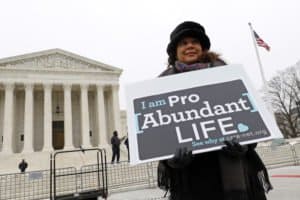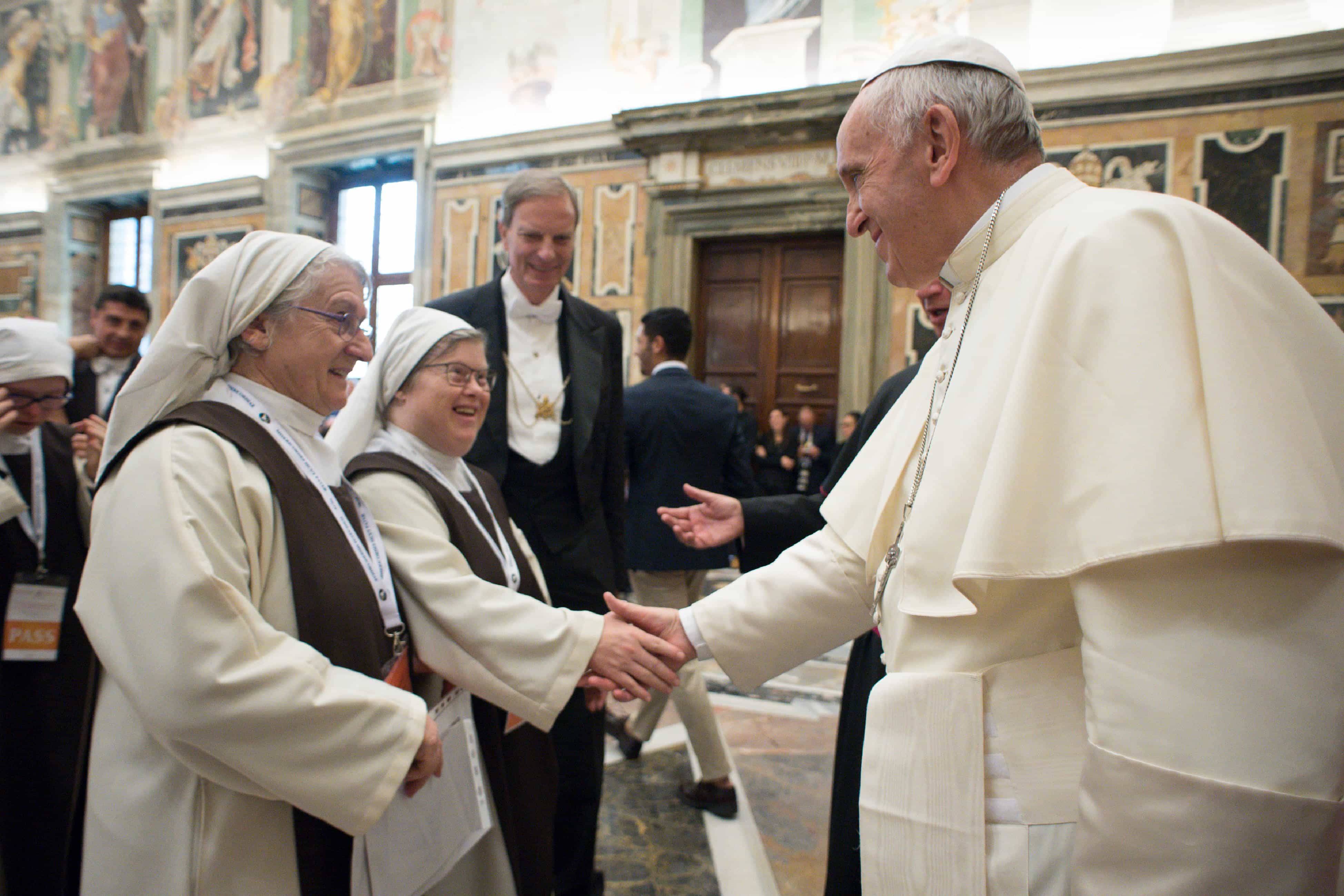We’ve all read articles and listened to arguments about how the Catholic pro-life movement needs to take a broader approach to life issues. Aware of my male privilege, the complexities of the abortion issue, and saddened by the ways women have been shamed in this conversation, I agree with those arguments. But as we close Respect Life Month, I am curious how often this argument is just an excuse to not talk about abortion at all.
You’ve probably read these words by Sr. Joan Chittister:
I do not believe that just because you’re opposed to abortion, that that makes you pro-life. In fact, I think in many cases, your morality is deeply lacking if all you want is a child born but not a child fed, not a child educated, not a child housed. And why would I think that you don’t? Because you don’t want any tax money to go there. That’s not pro-life. That’s pro-birth. We need a much broader conversation on what the morality of pro-life is.
She is right. Too often, however, her words are used to limit rather than expand the conversation on abortion. Sister Joan is not calling us to forget the issue of abortion. On the contrary, she is challenging us to connect abortion to a wide variety of issues that demean the dignity of human life.
Where are the Catholics willing to promote SNAP programs, education equity, child care subsidies, housing vouchers, denounce systemic racism and LGBTQ violence, and still challenge the morality of abortion out loud? I think those voices could lie within young Catholic millennials and I wish they were louder.
There is a divide between “pro-lifers” who fail to preach a consistent ethic of life and those who resist various assaults on human dignity but neglect to question the morality of abortion. A voice is missing in our social, political, and theological conversations about life and dignity of the human person. If you’re a progressive Catholic, millenial or not, doubting whether you can or should be bolder in questioning abortion, I hope this will give you a place to start your discernment.

A woman walks along a street in Reykjavik, Iceland, June 15. The country is on its way to “eliminate” people with Down syndrome. (CNS photo/Birgir Thor Hardarson, EPA)
Pope Francis recently denounced abortion’s “eugenic tendency” while speaking to a conference on persons with disabilities. The percentage of babies screened positive for Down Syndrome who are aborted is astonishing: 100% in Iceland, 67% in the U.S., 77% in France, and 98% in Denmark. Francis explained, “An often narcissistic and utilitarian view, unfortunately, leads several to consider people with disabilities as marginal, without seeing the multifaceted human and spiritual wealth that they possess.”
The growing movement to eliminate people with Down Syndrome sends a false message that the life of those who live with Down Syndrome is less valuable, less necessary, and less cherished than those who do not have Down Syndrome.
That is sinful and wrong.
Earlier this month, Frank Stephens testified before a House Appropriations committee on Capitol Hill exclaiming, “I am a man with Down Syndrome and my life is worth living.” Speaking on the movement to limit Down Syndrome births, he lamented, “I completely understand that people pushing this ‘final solution’ are saying that people like me should not exist.”
He continued, “I don’t feel I should have to justify my existence.”
No one should. However, Frank and others will have to do so if this trend continues unquestioned. We need voices who will call others to think deeper about this issue, regardless of how inconvenient and unpopular it will be. Progressive Catholics especially have to be able to ask their fellow progressives, is this is really how we want to proceed as a people?

For millenials, that question alone will be difficult to engage, especially in progressive spaces like a university campus. Earlier this month the Students for Life group at St. Louis University erected a cemetery of innocents commemorating those living in poverty, the number of states still using capital punishment, and the number of abortions throughout the last year. It was a nonviolent remembrance of people often left unremembered and unreverenced. The modest cemetery, which consisted of 175 small wooden crosses in a school yard, was stolen overnight. Twice.
Dr. Fred Pestello, University President, wrote in a statement:
It is intellectually disturbing and ethically problematic that having a larger, more robust conversation about the value of life and finding common purpose is thwarted by ideological divides. I am not suggesting that we ignore our differences, but I am asking that we be willing to go to places that are uncomfortable, to spot the hurt in the world and in each other and to hold space for that pain.
Limiting the conversation on abortion is not progressive. Progress must include uncomfortable and honest conversations about how abortion has affected our cultural conscience when it comes to picking and choosing which lives are worth living, celebrating, and welcoming. Multiple feminist groups have done so and are able to speak to the issue much better than I ever could as man.
Regardless of one’s political stance on abortion, I hope that everyone would find this “eugenic tendency” deeply troubling. Let the lives, stories, and prophecy of people with Down Syndrome serve as a wakeup call and a source deeper dialogue within the abortion debate.
We began Respect Life Month with the deadliest shooting in U.S. history. We close it with horrifying knowledge of ethnic cleansing, suffering refugees, and nuclear threats. Let this all be a call to action and consciousness for young Catholics.


